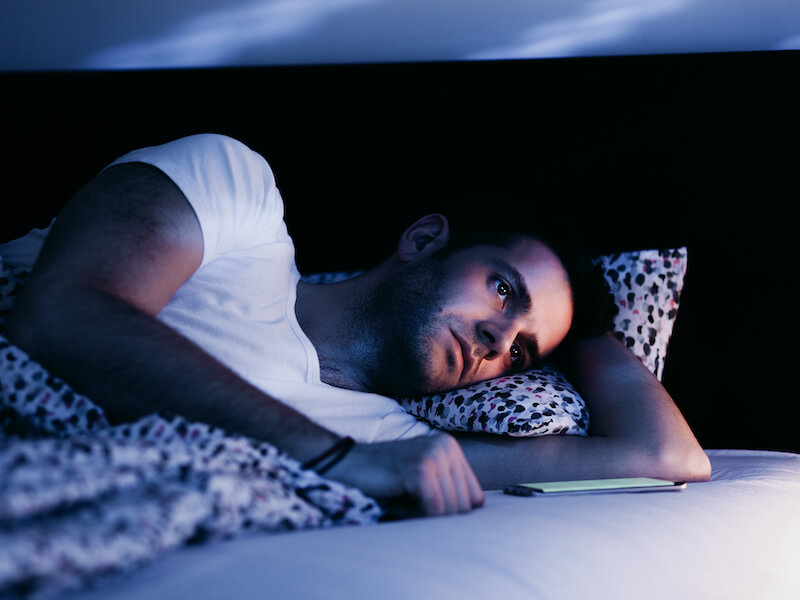
Snoring is something that’s annoying to you and your partner but it’s usually viewed as not much more than an aggravation. However, a condition called sleep apnea can frequently be the cause of snoring.
When you’re asleep, you can suddenly stop breathing because of sleep apnea. You should definitely take sleep apnea seriously because though it’s not that rare, sleep apnea can have severe health repercussions.
What is sleep apnea?
Technically, sleep apnea is a breathing ailment. Obstructive sleep apnea is an ailment that is the most prevalent type of sleep apnea here are some facts:
- When you fall asleep, your body becomes very relaxed.
- When the tissue of your throat gets relaxed, your airways can become blocked.
- you’re unable to inhale or exhale through this blocked airway and the outcome is that you stop breathing throughout the night.
- In some cases of sleep apnea, this blockage can happen dozens or hundreds of times in a single night.
Here are some typical symptoms of sleep apnea:
- Feeling tired or drained even when you got a good night’s sleep.
- When you wake up in the morning, you have a headache.
- Your partner has noticed that you sometimes stop breathing when you sleep.
- You have a snoring problem.
- A dry mouth or dry throat when you wake up.
Is your snoring connected to sleep apnea?
Snoring is incredibly common, so how can you tell when it’s normal (and non-harmful) and when it may be sleep apnea? You can generally watch out for one of the two manifestations:
- Loud, deep snoring: Light, high pitched snoring noises are produced as a result of a restriction in your airway. Sleep apnea is a consequence of a collapse or near collapse of your airways, and this produces deep, loud snoring.
- Snoring that ends in choking or gasping sounds: These choking or gasping sounds are caused by your body struggling to breathe through this airway collapse. You might sleep through this gasping, but if you have a partner you can ask them about it.
If you are experiencing these or similar symptoms, it’s time to call us for an appointment so we can help you put together an exact diagnosis and treatment plan.
Diagnosing sleep apnea
You can’t self-diagnose sleep apnea. We may have to set up a sleep study in some cases. There are two possible sleep studies that we may order:
- Home sleep test: A home sleep test is a simple sleep study and it includes a device that you can use at home. You use this device while in your own bed instead of coming into our clinic for testing. Generally, home sleep tests will monitor heart rate, blood oxygen levels, and airflow. The only drawback is that sometimes home sleep tests can deliver unreliable results. When this kind of study fails to get precise results you will need to do a follow-up study carried out at our clinic.
- Nocturnal polysomnography: This is the traditional overnight “sleep study.” Throughout the whole of your sleep experience, this nocturnal polysomnography study will take detailed measurements. You’ll spend the night sleeping in a special medical suite, hooked up to an array of monitors. While more inconvenient, nocturnal polysomnography is a lot more reliable than home sleep tests.
Sleep apnea will typically be eliminated or verified by these diagnostics. In some cases, you might be referred to an Ear-Nose-and-Throat physician to rule out a possible blockage.
How can you treat sleep apnea?
Once sleep apnea is diagnosed, it’s important to follow up by getting the appropriate treatment. For most patients, sleep apnea treatment will depend largely on the use of a continuous positive airway pressure (CPAP) device. All through the night, this device essentially pushes air into your lungs. This assists your breathing throughout the night and helps prevent your airways from collapsing.
But CPAP machines are often quite uncomfortable. That said, most people positively adapt to them (and sleep better) after a short time period.
In other, more serious instances of sleep apnea, there are some different possibilities. Anything from different devices to surgery, or both, could be included in these other therapies. There’s no one-size-fits-all answer to sleep apnea, so be sure to talk to us about what your options may be.
It might be more than snoring
It’s easy to disregard sleep apnea as nothing more than everyday snoring. But that snoring could be negatively impacting your health and your quality of life. Diagnosing and treating your sleep apnea can help you get better rest and remain healthier.
Resources
https://www.mayoclinic.org/tests-procedures/polysomnography/about/pac-20394877